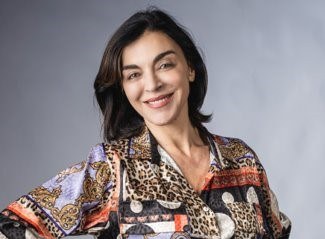
Stefania De Pascale is full Professor of Horticulture and Floriculture at the University of Naples Federico II. Recent research activities include the setup of a Bioregenerative Life Support System based on the use of plants for food production, air regeneration and water purification and the effects of “Space environment” (i.e. microgravity and ionizing radiation) on plants. She is the responsible of the Laboratory of Crop research for Space including the PaCMAN Plant Characterization Unit conceived as a crop research facility within the MELiSSA program, a joint long-term effort, led by the European Space Agency (ESA), focused on the development of a regenerative life-support system in the sight of future long-term manned missions to Moon and Mars.
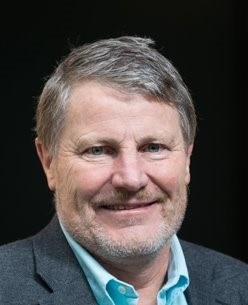
Bruce Bugbee is a professor at Utah State University and President of Apogee Instruments. He has collaborated with NASA for over 40 years to design food production systems for people living on Mars. In 2011 he was awarded the Utah Governors Medal for Science and is a Fellow of both the Agronomy and Horticulture Societies. He has recorded multiple videos on plant cultivation in controlled environments; one has over two million views. In 2015 he recorded a TED talk entitled, “Turning Water into Food.”
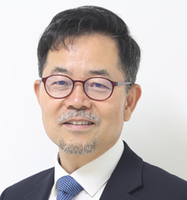
In-Bok Lee is Professor at Seoul National University, College of Agricultural and Life Sciences, Republic of Korea. He received a PhD degree in 1998 in aerodynamics and energy in agriculture at the Ohio State University, USA. The major research field of I. B. Lee is Aero-Environmental and Energy Engineering in Agriculture while his researches combine experimentation and simulation. He conducts studies on greenhouse structural design with wind loads, natural and mechanical ventilation design of greenhouses, energy saving and renewable energy of greenhouse, urban agriculture, information and communication technology and smart farm greenhouses, Virtual Reality (VR) and Digital Twins (DT) of greenhouse, etc. His research team, Aero-Environmental and Energy Engineering Laboratory(A3EL) is very strong for aerodynamic approaches such as Computational Fluid Dynamics, large-sized wind tunnel, particle image velocimetry, etc and actively develops various advanced experimental tools for field experiments. In-Bok Lee has published over 120 peer review papers and over 200 papers in professional journals.

Eri serves as vice president of the Japan Plant Factory Association (JPFA), a nonprofit organization devoted to academic and business advancements in plant factory/controlled environment agriculture (CEA). Before joining the JPFA, Eri worked at a private research institute in Tokyo, specializing in technology advancement for global food production. She has been conducting international field research on plant factories/CEA since 2008. She has published multiple research papers and has been a research project manager on artificial intelligence and phenotyping-based next-generation plant factory for environmental control and breeding. She has a keen interest in technological advances, including phenotyping, in plant factories. She received a Ph.D. from the Graduate School of Horticulture, Chiba University.
Eri Hayashi contribution to the ISHS Talks on Vertical Farming can be found here: What are the critical choices and decisions towards next generation plant factories?
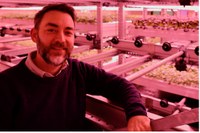
Michael Martin is a Senior Researcher at IVL Swedish Environmental Research Institute and Adjunct Professor of Sustainable Production and Consumption Systems at KTH Royal Institute of Technology in Sweden. He holds a Ph.D. in Environmental Systems Analysis and Environmental Management and has extensive experience from the research field of industrial ecology, including industrial symbiosis, circular production systems, urban agriculture, and sustainability assessments across stakeholder categories to promote sustainable production and consumption. He leads the Sustainable Urban Food Lab group at IVL where his research is focused on assessing and improving the sustainability and resilience of urban and regional food systems in collaboration with many of the urban and vertical farms in Sweden. He has recently contributed to an FAO study on the sustainability of urban and vertical farming systems.
Michael Martin contribution to the ISHS Talks on Vertical Farming can be found here: Are vertical farms sustainable for the environment?
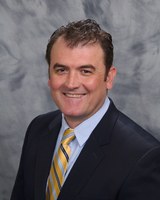
Murat Kacira is director of the Controlled Environment Agriculture Center and he is a professor in the Biosystems Engineering Department at the University of Arizona. His research involves environmental control, automation, alternative energy, and resource use optimization in controlled environment agriculture systems including greenhouses and vertical farms. He is a member of American Society of Agricultural and Biological Engineers (ASABE), American Society of Horticultural Sciences (ASHS), and International Society for Horticultural Science (ISHS). He served a Chair of Division Precision Horticulture and Engineering and Executive Board of ISHS for eight years.
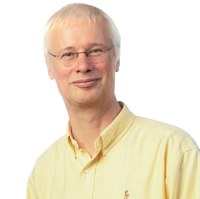
Ep Heuvelink has over 35 years of experience in scientific research and education in controlled environment agriculture (CEA; greenhouses and vertical farms). He is associate professor in the Horticulture and Product Physiology group of Wageningen University & Research. His expertise is greenhouse crop physiology and crop simulation. He supervised over 130 MSc thesis students and is co-promotor of 25 PhD students. Ep is frequently invited as a keynote speaker at international scientific symposia and teaches advanced intensive courses on greenhouse production and vertical farming, crop physiology and crop modelling all over the world. He is a teacher in the Wageningen Summerschool on Greenhouse Horticulture and (co-)authored 124 papers in refereed scientific journals, over 200 papers in professional journals and 5 books.

Prof Dr Leo Marcelis is head of the chair group Horticulture and Product Physiology at Wageningen University, The Netherlands. This group holds a strong position in research and education on greenhouse horticulture, vertical farming and the post-harvest quality. Marcelis has a vast experience in studying the physiology, growth and product formation of plants and plant organs in order to improve sustainability and quality of crop production in greenhouses and vertical farms. In particular fluxes of assimilates, water and nutrients in the plant, sink/source interactions and partitioning among plant organs in response to abiotic constraints are subject of study. He has (co-) authored more than 90 scientific articles with an H-index of 29 (according to Web of Science) and over 250 articles for growers. He is chief editor of the section Crop and product physiology of Frontiers in Plant Science.
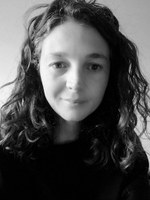
Giuseppina Pennisi is a assistant professor (RTDA) at the Department of Agricultural and Food Sciences of the University of Bologna. She obtained her PhD in December 2019 at the University of Turin, in cotutelle with the Universidad Politecnica de Cartagena (in Spain), with a thesis entitled LED lighting for the indoor cultivation of leafy vegetables and herbs. Dr. Pennisi is a council member of the National PhD school on Artificial Intelligence. Her research sectors are: urban agriculture, soilless cultivation, vertical farming, artificial lighting. She coordinates the research unit of UNIBO in the Erasmus project LOFT and contributes to the activities of European projects: "FoodE - Food systems for European cities", the national PRIN project VFarm (Sustainable Vertical Farming), and Erasmus+ project BESTMicrogardens. She was also involved in additional projects as "BUGI - Western Balkans urban agriculture Initiatives", "GardensToGrow", "Innofarming", "Urban Green Train".
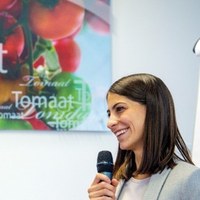
Originally from Italy, Isabella is living and working in the Netherlands since 2018. With a background in Horticultural Science, she is currently working as Researcher at Wageningen Research in the unit of “Greenhouse Horticulture”. At the same time, she is doing a PhD within the “Horticulture & Product Physiology” at Wageningen University focusing on production efficiency and resource use in Controlled-environment Agriculture for urban and peri-urban areas. Her research over the years has included: projects in Vertical Farming and high-tech greenhouse (both academic and B2B) to investigate resource use efficiency and production of different crops (e.g., tomato, cucumber, soybean and, to a lesser extent, strawberry, basil, lettuce); validation of greenhouse-climate models adapted to different climatic regions; use of validated greenhouse-climate models to assess the effect of greenhouse investments (e.g., greenhouse structure, climate equipment) and management (e.g., climate settings) on crop yield, resource and energy use.
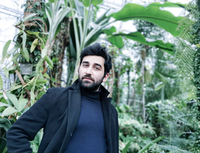
Michele D'Ostuni is an Architect and holds a Ph.D. in architecture from Florence University. He has focused his research on strategic urban planning for circular cities together with the study of soilless cultivation systems for new models of Urban Agriculture. His doctoral thesis entitled “Towards a productive architecture: high-tech food production technologies integrated into architecture for the implementation of new models of urban agriculture” brings together topics related to sustainable buildings and district design together with the most pressing issues of current food production systems. The multidisciplinary nature of his research leads him to go beyond the confines of the faculty of architecture and work closely with the faculty of agriculture in Bologna (where he organizes the international UrbanFarm Student Challenge) and the department of Greenhouse Horticulture of Wageningen University and Research (where he studied as visiting Ph.D. student). The main topics of his research are connected both to urban regeneration and green building design, using advanced food production systems as a key element of constructive sustainability according to principles of the circular economy.
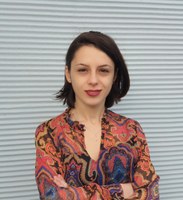
Laura Cammarisano is a scientist postdoc at Leibniz - Institute of Vegetable and Ornamental Crops (IGZ) in Germany. She obtained her PhD in 2020 from Aberystwyth University in Wales with a project aiming at optimising lettuce biomass and quality in vertical production systems by the sole use of light features. Her research focuses on plant responses to light in indoor farming with the goal to monitor and tailor early plant stress and related quality improvements. She collaborates with non-profit association and industries in vertical farming.
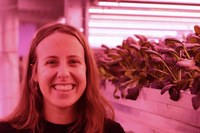
Laura Carotti is a PhD student at the University of Bologna, in the Department of Agricultural and Food Sciences. Her research focuses on cultivation techniques to increase resource use efficiency, in both experimental and commercial systems, particularly through light management. She is involved in several projects, such as the European project H2020 FoodE (Food System in European Cities).

Dafni Avgoustaki is an agriculture engineer and holds a PhD in the optimisation of energy efficiency for artificial light operation from indoor vertical farms from the Department of Business Development and Technology (BTECH) of Aarhus University in Denmark (AU) (year 2021). She specializes in the development, evaluation and application of new and efficient techniques and technologies for the production of agricultural products in controlled growing conditions (vertical crops, greenhouses, hydroponic systems, and artificial lighting systems), rational, efficient and sustainable management of natural resources in agricultural systems. She also works on remote sensing and crop monitoring through reflective measurements as well as practices for improving the energy efficiency, cultivation management and diseases detections of crop via image processing and analysis and precision agriculture. Additionally, she has participated in 5 scientific projects (national and Danish and European) and worked as project’s coordinator. She has participated in 3 entrepreneurship programs as the co-founder of her start-up (VerdeCube)based in Denmark that produces smart-decision energy management software for artificial lighting in closed vertical farming crops. She has 15 publications in international peer-reviewed journals and 5 publications in international conferences.
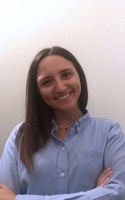
Ilaria Zauli is a PhD student at Bologna University. Her research focuses on studying aeroponic and hydroponic systems for vertical farming, carrying out research activities in AlmaVFarm, the experimental vertical farm in the Department of Agricultural and Food Sciences at Bologna University. Her study develops on new species, focusing on testing different light and plant density conditions to improve yield and resources use efficiency in indoor farming. She is involved in the European project H2020 FoodE (Food System in European Cities) and in the national PRIN project VFarm (Sustainable Vertical Farming)
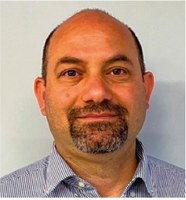
Antonio Ferrante is full professor of Horticulture and Floriculture at the University of Milan. He studied Agricultural Sciences at the University of Pisa where he graduated with honours in 1992, he was a student and PhD student at the Sant'Anna School of Advanced Studies in Pisa. He started his academic career as a technician at the University of Pisa in 2001 and from 2004 at the University of Milan first as university researcher until 2016 and as associate professor until 2021. He spent several periods abroad at the University of California, Davis, USA (2000). Member of Italian Society for Horticultural Science (SOI) since 2001 of the International Society of Horticultural Science (ISHS) since 2005, and of the Agricultural Society of Lombardy, since 2018. Appointed Academic Correspondent of the Accademia dei Georgofili in Florence since 2017. President of the Italian Society for Horticultural Science (SOI) from 2022. He authored more than 200 publications in scientific and technical journals, most of which indexed in Scopus.

PhD. José Ernesto Olvera González is a professor-researcher and current President of Technological Institute of Pabellón of Arteaga in Aguascalientes, Mexico. He earned a doctorate in engineering sciences at the Autonomous University of Zacatecas and is the founder of the Artificial Lighting Laboratory (LIA), the only laboratory in Mexico focused on the use of artificial light with LED technology applied for the production of crops for human consumption and other applications in the agro-industrial sector such as food disinfection with UV-LED Light. Dr. Olvera has more than 21 published international scientific research and technological innovation.
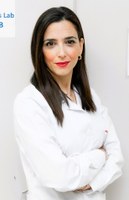
Dr Aphrodite Tsaballa is an associate researcher at the Institute of Plant Breeding and Genetic Resources (IPBGR) of the Hellenic Agricultural Organization (ELGO-Dimitra), in Thessaloniki, Greece. Her research area is plant breeding and genomics. She is currently the national principal investigator of the PRIMA funded project “SAFE” jointly run by the Genomics Lab and Sustainable Agricultural Structures & Renewable Energy Resources Lab (IPBGR). Dr Tsaballa is an agronomist and holds a master’s and doctoral degree in plant breeding and genetics from the School of Agriculture, Aristotle University of Thessaloniki. She has been awarded a Marie Sklodowska-Curie Individual Fellowship from the European Commission to carry on research on miRNA turnover at the University of East Anglia, in Norwich, UK. She has co-authored 22 publications, 9 of which as first author (h-index 17), while she has participated as a speaker in numerous conferences. She is engaged in various science communication activities as well as in mentoring programs.
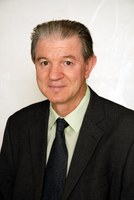
Dimitrios Savvas was awarded a Diploma in Agriculture from the Agricultural University of Athens (AUA) in 1985 and a Ph.D. degree from the University of Bonn, Germany, in 1992. From October 2015 he has been a full Professor in AUA. Since October 2016 he has been the Director of the Laboratory of Vegetable Production and, since September 2019, he is the Dean of the Faculty of Plant Sciences. He specializes in soilless culture, plant nutrition, water management, and applied stress physiology with emphasis on salinity and greenhouse crops. He has published over 110 papers in refereed international scientific journals (with IF) and many other papers in congress proceedings (Acta Hort.) and as book chapters. According to the bibliographic classification of Baas J, Boyack K, Ioannidis JPA. (2021) Professor Savvas ranks within the top 2% of scientists worldwide in his scientific field. He has been involved in many EU research projects. In the last 5 years, in addition to several national projects, he has been the coordinator of the AUA team in the European projects LEGUME FUTURES (FP7), EUROLEGUME (FP7), TOMRES (HORIZON2020), TRUE (HORIZON2020) and VEGADAPT (PRIMA) and core member of the research team in the H2020 Project RADIANT. Since November 2022 he is coordinating the consortium of the European Innovation Project of HORIZON Europe ECONUTRI.
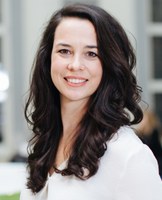
Maria J. Bustamante is a postdoctoral researcher at KTH Royal Institute of Technology in Sweden where her research focuses on high-tech vertical farming. The project seeks to understand the sustainability and viability of modular vertical farming systems by studying the new service and data-driven business models these systems represent for both retailers and vertical farming companies. The overall goal is to build a greater understanding of the potential impact and changes needed within organizations and the broader value chain to achieve both organizational and societal goals related to sustainability. Maria holds a Ph.D. in Business Administration from the Stockholm School of Economics. Maria J. Bustamante’s contribution to the ISHS Talks on Vertical Farming can be found here: Is there a market for vertical farming products?
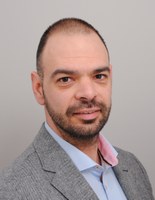
Theoharis Ouzounis serves as the Chief Scientific Officer (CSO) at Red Horticulture, an international scale-up company headquartered in France with offices in the Netherlands. The company specializes in industrial photobiology and offers comprehensive dynamic LED lighting solutions. Prior to his role at Red Horticulture, Haris held a number of positions in the field of Controlled Environment Agriculture. He worked as a Research Manager at Aerofarms in Abu Dhabi and previously served as the Research Project Manager at Fluence in EMEA, based in the Netherlands. His academic journey includes a postdoctoral research position at Wageningen University, a PhD from the University of Southern Denmark (in collaboration with Aarhus University and the University of Copenhagen), a MSc from Michigan State University in the USA, and a BSc from Aristotle University in Greece. Haris possesses expertise in spectral and light intensity responses, as well as extensive experience in planning, defining, executing, and delivering projects within the realms of greenhouses, indoor farms, and climate chambers. He excels in establishing strategic partnerships with both commercial and academic entities, fostering collaborative relationships that consistently yield successful and impactful outcomes.

Giedrė Samuolienė, defended bachelor’s degree in biology (2001), master’s degree in chemical analysis and control (2003) and PhD in agronomy (2008) in Vytautas Magnus University (Lithuania). She is the Head and Chief Researcher of Laboratory of Plant Physiology; Science Coordinator, Institute of Horticulture, Lithuanian Research Centre for Agriculture and Forestry; docent at Vytautas Magnus University, Agriculture academy; and Member of Lithuanian Academy of Science. Her main research fields are horticulture, plant (photo)physiology, stress physiology, plant productivity, metabolism. She has published 63 publications in CA WoS data base journals with impact factor, in total – more than 100, with a h27. She has National science award (2014, with co-authors), Silver medal of Vytautas Magnus university (2015), Scholarship of the Lithuanian Academy of Sciences (2012-2013).
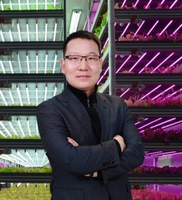
Tao Li was awarded a PhD degree in Horticulture and Product Physiology Group of Wageningen University in January 2015. Since July 2015 he worked at Institute of Environment and Sustainable Development in Agriculture, Chinese Academy of Agricultural Sciences (CAAS). In January 2022 he was promoted as a professor in the subject of controlled environmental agriculture. His research activity is to explore the potential of crop yield and quality improvement by applying LEDs. At present, he is the chief scientist of a National Key Research and Development Program of China which mainly focus on exploring the potential of using plant factory for speed breeding of staple crops. To date, he has published more than 50 scientific papers in the international peer reviewed journals, and he often attend international symposiums and give presentations.

Yongran Ji is a postdoctoral researcher at the Horticulture and Product Physiology group of Wageningen University. He specialises in studying plant responses to different light spectra, particularly far-red. His research not only focuses on understanding the physiological and molecular mechanisms behind these responses, but also their applications in yield improvement, quality enhancement, and speed-breeding of horticultural crops in controlled environment agriculture.
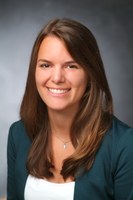
Ann-Kristin is a researcher at the ILS Research, Affiliated Institute of ILS – Research Institute for Regional and Urban Development gGmbH in Dortmund, Germany. Her research focuses on urban agriculture, in particular the integration of vertical, hydroponic agricultural production on wastewater treatment plants in the sense of a circular economy, as well as in food system transformation and the strengthening of city region food systems. She is involved in several national and international projects, such as the European project H2020 FoodE (Food System in European Cities).

Mexx Holweg, a PhD researcher at the Horticulture & Product Physiology group of Wageningen University & Research, investigates how the light environments influences the growth, development, and medicinal compound accumulation in medicinal cannabis. Central to his research is the impact of light intensity and spectrum. Through detailed analyses of plant morphology and photosynthesis, his work seeks to clarify treatment effects and plant adaptability. His research endeavours to expand scientific understanding while also contributing to the standardization of cultivation methods, furthering the integration of medical cannabis into modern pharmaceutical practices.
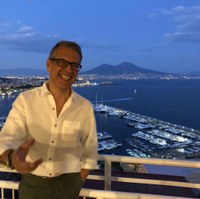
Albino Maggio is Professor of Agronomy and Crop Science at the University of Naples Federico II, Italy. He is expert on crop responses to environmental stresses with a focus on salinity, water shortage and resource use efficiency in agricultural systems. He contributed with over 100 publications in refereed journals and books to the field of functional biology of crop stress adaptation. He has recently worked on forward look analyses of food systems.